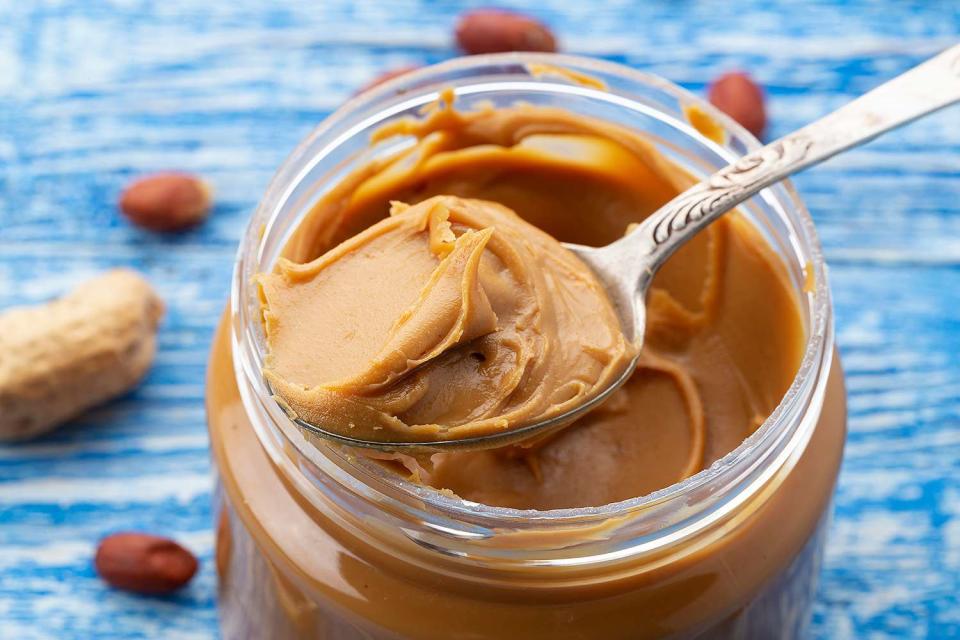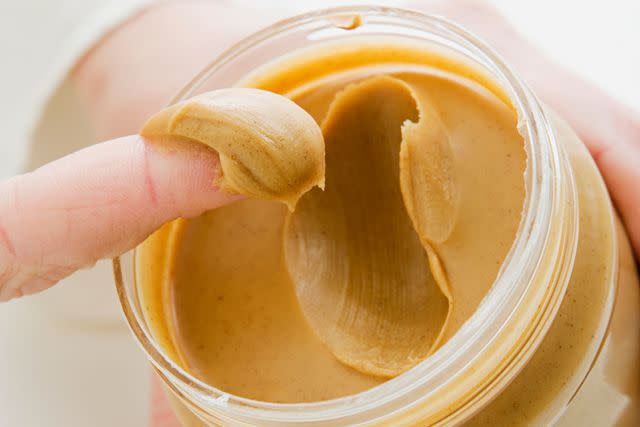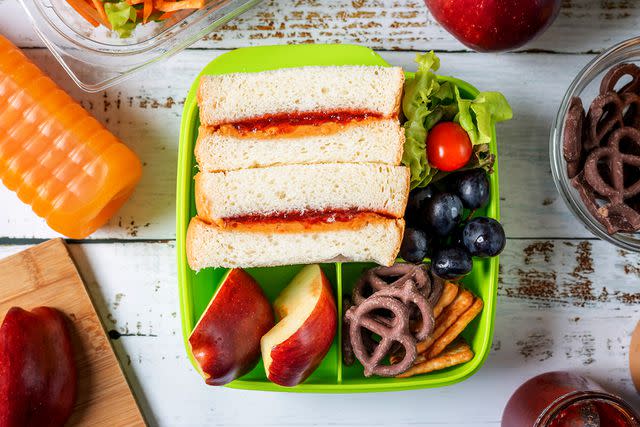Want to Prevent Childhood Peanut Allergies? Then Feed Your Kids Peanut Butter, Study Says
Researchers found that children who consumed peanut butter regularly before age 5 were less likely to develop the life-threatening allergy

Getty
Stock image of peanut butter.Feeding young kids peanut butter may be effective in preventing peanut allergies later in life, a new study says.
“Feeding children peanut products regularly from infancy to age 5 years reduced the rate of peanut allergy in adolescence by 71%,” the National Institutes of Health (NIH) said in a release about the research posted on Tuesday, May 28. (Details about the study were also published by the New England Journal of Medicine.)
According to the NIH, incorporating peanuts early on still effectively prevented later allergies even if the children ended up avoiding peanut products later on.

Getty
Stock image of peanut butter on someone's finger.And for children who weren’t fed peanuts, “peanut allergy remained significantly more prevalent in participants in the original peanut avoidance group than in the original peanut consumption group,” the NIH reported.
The study, co-funded by the NIH’s National Institute of Allergy and Infectious Diseases (NIAID), provided “conclusive evidence that achieving long-term prevention of peanut allergy is possible through early allergen consumption.”
This is a far cry from the 2000 recommendation from the American Academy of Pediatrics, which “suggested high-risk infants avoid peanuts” until age 3. That advice, however, was later rescinded in 2008.
The PEOPLE Puzzler crossword is here! How quickly can you solve it? Play now!
The new findings come as incidents of peanut allergies continue to rise in the U.S. A 2017 study found that childhood peanut allergies had increased 21% since 2010 — and that nearly 2.5% of U.S. children may have an allergy to peanuts, according to data from the American College of Allergy, Asthma, and Immunology.
Per the the Mayo Clinic, the problem with peanut allergies is that they don’t just trigger a rash or discomfort. Peanuts can cause a life-threatening reaction called anaphylaxis, which causes the airways to constrict, and the throat to swell.
The reaction can be fatal, and requires treatment with an epinephrine injection (like from an EpiPen) and immediate medical intervention.

Getty
Stock image of a school lunch with peanut butter.Mislabeled food can often lead to accidental peanut ingestion — and death — as was the case for Órla Baxendale, a 25-year-old from Ohio who died after eating cookies she didn’t realize contained nuts.
And in February, a Texas teen with a nut allergy reported that his football teammates were putting nuts in his locker as a form of harassment.
The allergies are so severe that several schools either have a no-nut policy, or maintain nut-free tables in the cafeteria to avoid cross-contamination.
Related: Mom Says Teen Sons Were Kicked Off Flight After Asking the Crew to Accommodate Peanut Allergy
“Today’s findings should reinforce parents’ and caregivers’ confidence that feeding their young children peanut products beginning in infancy according to established guidelines can provide lasting protection from peanut allergy,” NIAID Director Jeanne Marrazzo, M.D., M.P.H. said, per the release.
She added, “If widely implemented, this safe, simple strategy could prevent tens of thousands of cases of peanut allergy among the 3.6 million children born in the United States each year.”
Never miss a story — sign up for PEOPLE's free daily newsletter to stay up-to-date on the best of what PEOPLE has to offer, from celebrity news to compelling human interest stories.
For more People news, make sure to sign up for our newsletter!
Read the original article on People.

